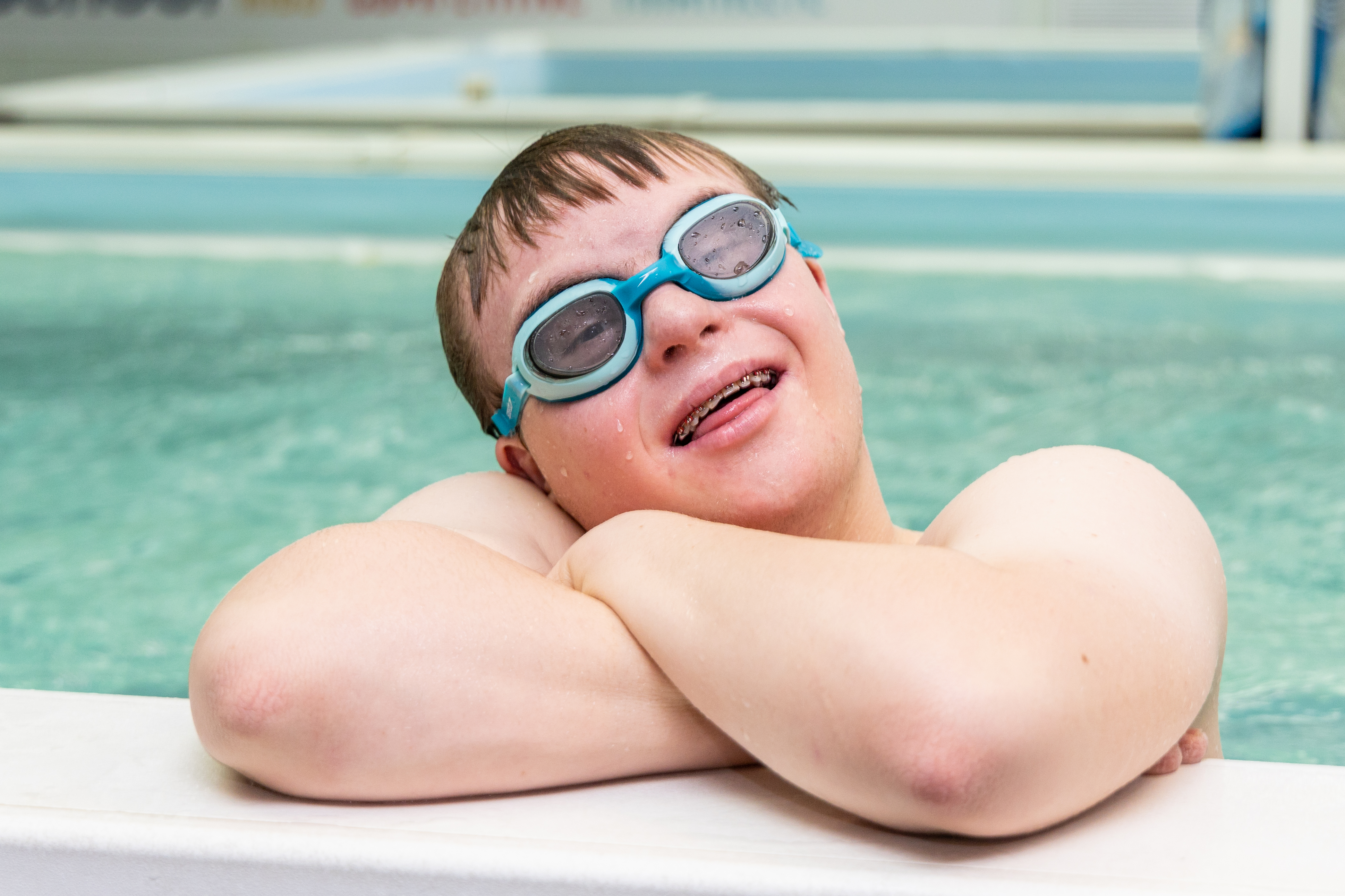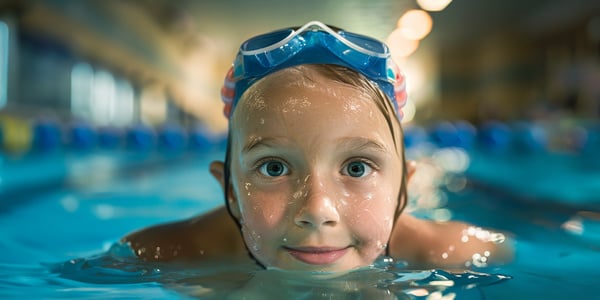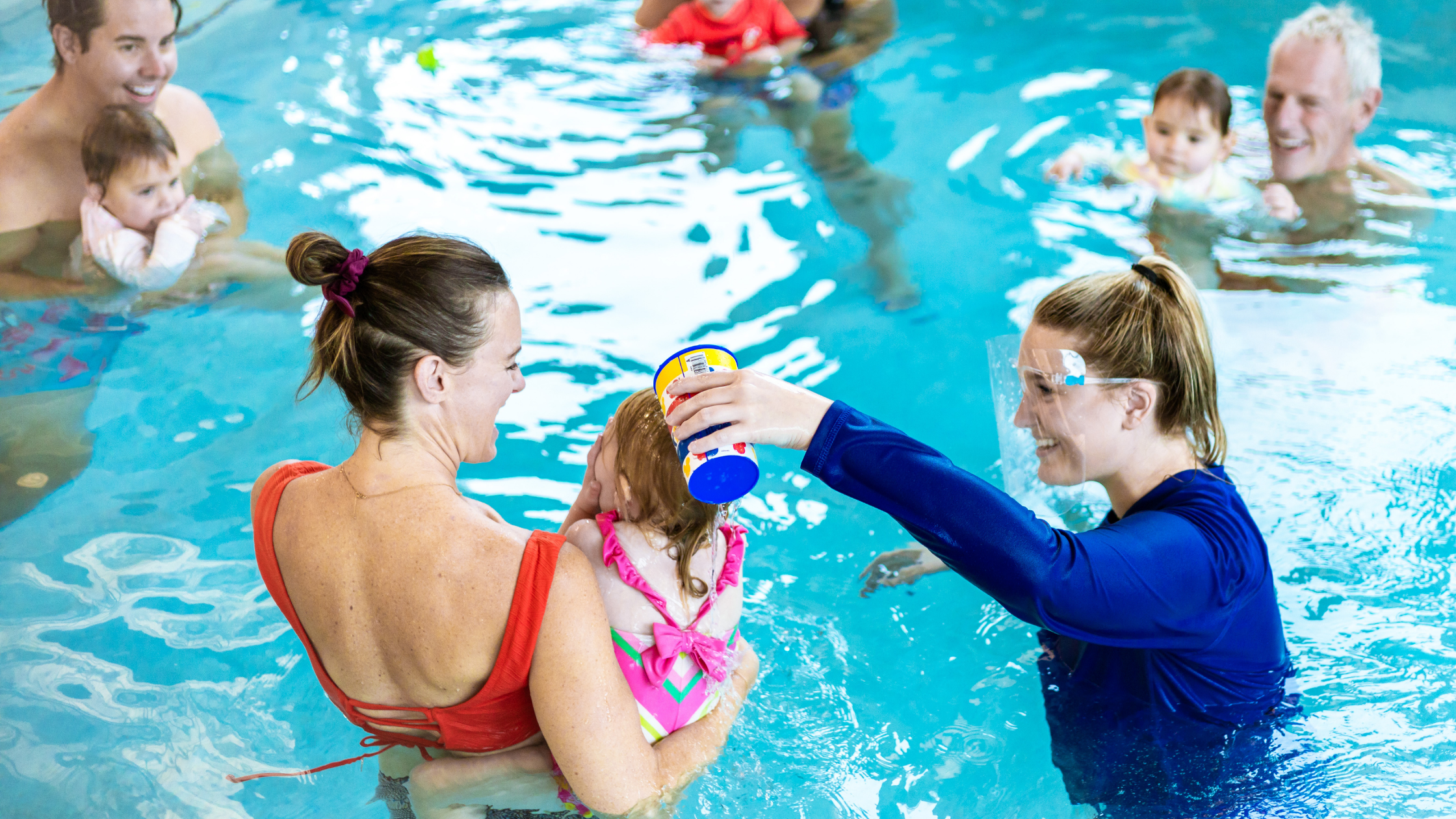Can Swimming Lessons Make Your Child Smarter? The Cognitive Benefits of Swimming
Learning to swim goes beyond just water safety—it can also enhance your child's cognitive development! Swim lessons offer your child a great mix of...


Everyone should learn how to swim. That goes for children AND adults that may require specialized or adapted swim instruction.
Swimming doesn’t come easily for everyone even if you’ve taken lessons. Some people have specific challenges –mentally, physically, or both. They need a different type of learning than the typical group swim lessons most swimmers take.
Adaptive Aquatics, sometimes referred to as Special Needs Swim Lessons, are swimming lessons geared towards people with cognitive, developmental, and neurological challenges. Those challenges can include the following:
Remember, each special needs child views and processes their surroundings differently and we understand they need individualized instruction provided by flexible instructors. Our instructors incorporate child-focused methods in their lessons and have completed thorough training to interpret the best learning methods for each swimmer.
Children who have specific challenges derive plenty of benefits from adaptive aquatics. For starters, swimming lessons help keep children safe in the water. Drowning is the the top cause for accidental death in children with autism.
Adaptive swim lessons offer a safe and gentle way to strengthen muscles and increase lung capacity. Your child also learns about water safety too. That is critically important as children seek out water bodies such as pools, lakes, and even your bathtub.
Special needs children often find swimming lessons to be therapeutic and calming. The water provides a feeling of weightlessness and relief from physical pain. Water can also reduce sensory overload. Students can improve their balance and coordination. They also improve range of motion and strength in the water too. Parents often notice a boost in self-esteem and improved confidence due to swim lessons.
Special needs students experience the world differently from their peers. They often need swim instructors who specialize in one-on-one lessons and who have experience in teaching children.
At SafeSplash, parents are encouraged to meet with the instructor before lessons begin. This allows the parents to develop a comfort level with the instructor and to express questions or concerns. It is also important for the instructor to understand your child's needs and ultimate goals with swimming lessons. Each student responds differently so the right teaching plan is critical to the student’s success. Parents and the instructor will also be on the same page regarding the expectations of the lessons.
At SafeSplash, instructors undergo extensive training to be qualified to provide special needs swim lessons. SafeSplash's specialized Adaptive Aquatics curriculum is created to be customized to each individual swimmer. Learning to swim takes time and that is especially true for our Apative Aquatics students. If needed, multiple instructors may be utilized during one lesson to ensure the safety and comfort of your swimmer. Lifeguards are also on watch during each and every lesson and all instructors are CPR certified! We know the safety and comfort of your swimmers is top priority and it is for us too!
We understand that each swimmer requires a unique learning experience. This is why we created our curriculum to be all-inclusive. If your child is nonverbal or has communication challenges, your instructor may utilize visual cue cards to communicate with your swimmer. Our skill progression is also customized to suit each individual's pace of progression and each swimmer will receive a ribbon as they progress at their own pace.
Each pool at SafeSplash is also outfitted with an ADA Aquatic lift for swimmers with physical limitations that make getting in and out of a pool difficult.
In some cases, swimmers who have developmental, physical, and sensory challenges can relax their bowels in the water. Swim diapers might be necessary for those students who aren’t completely potty trained. The combination of a reusable diaper and a disposable swim diaper works well together. The two diapers make for a snug fit. The swim instructor will have ample time to get the student out of the pool in the event of an accident.

Learning to swim goes beyond just water safety—it can also enhance your child's cognitive development! Swim lessons offer your child a great mix of...

Everyone should know how to swim. That starts with taking swimming lessons. Luckily, it’s never too late, or too early, to learn, since swimming is...
.png)
When the leaves begin to change, and the air becomes crisp many people assume it’s time to pack up their swimsuits and say goodbye to the pool. We...

Visit our Water Safety Blog for expert advice, family tips, and more!